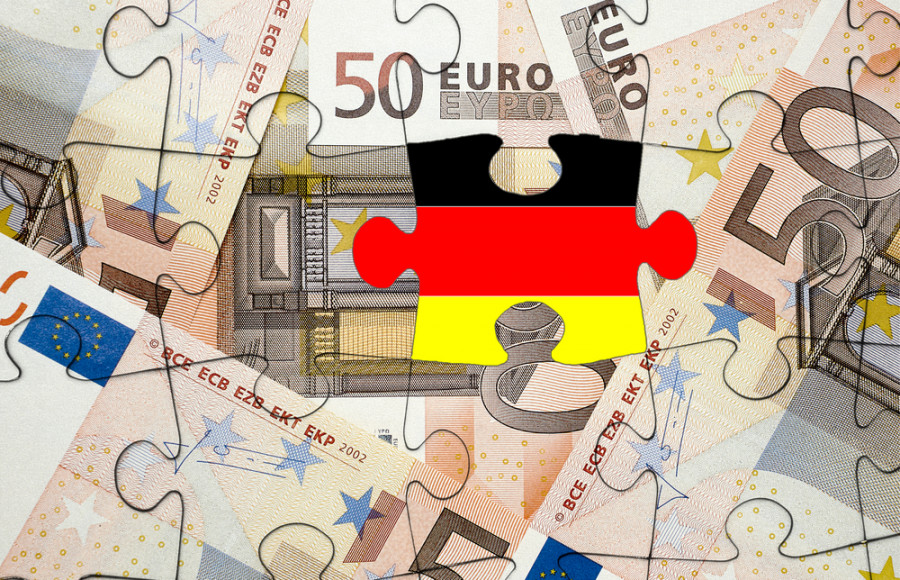At the end of a three-day southern marathon, the euro/dollar pair remained unchanged. While there is no longer any downward momentum, EUR/USD bulls do not yet have enough justification to resume the northern trend. As a result, traders were in a deadlock: buyers couldn't bring the price back to the 1.0850-1.0950 area, although this is a requirement for restoring positions, and sellers couldn't get a foothold below the 1.0700 mark (despite making necessary attempts).
Jerome Powell and Christine Lagarde both failed to assist market participants in identifying the direction of price movement. The Fed chairman gave the dollar some temporary assistance, but his comments failed to spark a dollar rally (in my opinion, traders underestimated the hawkish themes voiced by Powell). Macroeconomic statistics weren't particularly attractive to traders either; the minor releases that were made public between Monday and Wednesday didn't cause any price volatility.
The economic calendar for this week is not empty, though. A fairly significant macroeconomic report will be released tomorrow, February 9. We are discussing the release of data concerning Germany's rising inflation rate.
It should be recalled that Christine Lagarde was unable to sustain the euro after the ECB meeting in February because of her unpredictable comments. She promised a guaranteed 50-point rate increase at the March meeting, but she also questioned taking other steps to tighten. A double impression was also left by the data on the rise in European inflation that was released the day before the ECB meeting. Although the core CPI stayed at a record high level in December (5.2%), contrary to the majority of experts' predictions of a decrease to 5.0%, it did reflect a slowing in the total consumer price index (the indicator fell in January directly to 8.5% with an anticipated decline to 9.0%).
The European currency was unable to recover and hold its position in the range of 1.0950 to 1.1050 due to Lagarde's inconsistent statements and the equally contradictory inflation figures.
If all elements of the report are in the danger zone, German inflation can either partially restore the euro's value or increase its pressure.
Germany is the center of attention
Preliminary predictions indicate that the consumer price index will be on the rise in January. As a result, following a two-month drop, the overall CPI may go upward and reach 8.9%. (y/y). The increased trend should also be reflected in the harmonized consumer price index, which should reach 10.0% (after falling to 9.6%).
The euro will have strong support if actual data and projections line up (not to mention the "green zone"). The German data could either lessen the ECB's "hawkish" position or raise concerns about pricing pressures in the European zone.
Many currency analysts, including Commerzbank, believe that the European Central Bank is about to end its current cycle of tightening monetary policy. The European regulator is anticipated to slow the pace to 25 points in May after the March 50-point increase, which is now certain. Additionally, a 25-point increase at the May meeting would be the decisive note; at 3.25%, the rate hiking process might come to a halt.
I reiterate that this scenario is simply one of several, but it has recently come up very frequently, especially following the ECB meeting in February. A 50-point spike in March could also be the final one for the current cycle, according to some observers. These presumptions are not just based on Lagarde's rhetoric. For instance, Francois Villeroy de Galhau, the president of the Central Bank of France and one of the ECB's most powerful representatives, stated yesterday that the eurozone "is not very far from reaching a peak in inflation" and that the ECB will not have to choose between combating inflation and averting a recession. Additionally, he said that the improvement of the financial situation in the European region "facilitates monetary tasks" in the same context. These statements were also perceived negatively for the euro in light of the outcomes of the most recent ECB meeting.
Conclusions
The EUR/USD pair may experience more volatility as a result of the data on Germany's rising inflation, particularly if the actual statistics differ from the anticipated predictions. Bears in the EUR/USD may attempt to test the sixth figure once again if the release ends up in negative territory (the nearest support level is located at 1.0680 - this is the lower line of the Bollinger Bands on the H4 timeframe). In this event, purchasers might take the initiative to drive the price back to the area of the eighth figure if the report surprises with its "green color." Given the high level of uncertainty, it is best to wait and see what happens with the pair for the time being.











